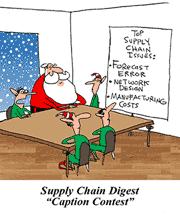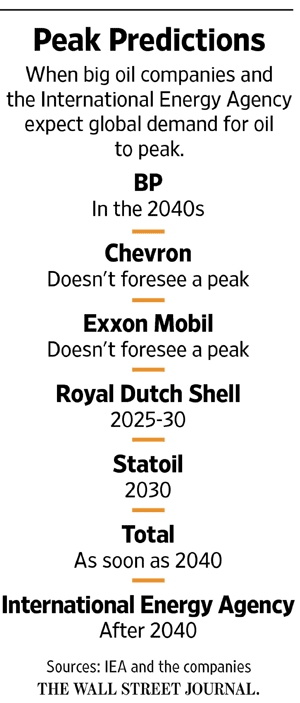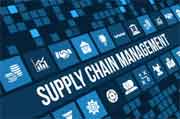 |
November 30, 2017 - Supply Chain Flagship Newsletter |
 |
|
||||||||||||
 |
|
|||||||||||||||||||||||||||||||||||||||||||||||||||||||||||||||||||||||
|
||||||||||||||||||||||||||||||||||||||||||||||||||||||||||||||||||||||||
|
|
|
YOUR FEEDBACK
Catching up on a variety of Feedback emails this week - see below
Feedback on Astounding Changes in Consumer Goods to Retail Supply Chains
![]()
This piece certainly belongs in the hall of fame Dan. Simply excellent work.
Going back to the early Greek philosophers it is said the only constant is change (or something like that). While I tend to be a bit of a process geek, and love to see constant flows that can benefit from minor (usually) improvements, the truth is that we must all be pragmatic visionaries about the future of our businesses and those of our business partners.
Everything will change, some things will change significantly, some new things will be introduced and some existing things will disappear. Our success will be based on how visionary we are about the future, how we plan to adapt to it, and how successfully we lead the transition.
Steven R. Murray
Lead Process Auditor and Senior Research Associate
WERC

![]()
Retirement has given me more time to think and perhaps the following train of thought has some relevance in relation to some of the topics covered in your recent package.
There has been much noise about robots replacing human beings particularly where the task is repetitive etc. There has also been comment and speculation about robots being developed/improved to use artificial intelligence and having an ability to learn from their mistakes.
Given these two aspects is there not the prospect of robots gaining emotional intelligence? If that comes to pass then could robots programmed to do warehouse work etc actually decide that it is far too boring and mundane, and therefore employ human beings to do that work for them. Perhaps we just have to wait it out, and that in the long run there will still be employment for the majority after all. Could Amazon and Ocado have got it wrong?
(With my tongue only slightly in my cheek!)
David MacLeod
Learn Logistics Limited

Feedback on Gilmore Review of "The Supply Chain Revolution"
![]()
I am the author of The Supply Chain Revolution. I saw your review of the book at scdigest.com. Thank you for taking the time to review the book and also asking your readers to provide their perspective. I appreciate it.
While writing the book, I had to balance between competing ideas such as the ones you pointed out - big picture vs. details, small vs. big business. I was hoping to have a follow-up conversation on these topics.
If you would like to discuss these or any other topics covered in the book, please let me know. I will be happy to share my thoughts with you.
Suman Sarkar
Partner
Three S Consulting

SUPPLY CHAIN TRIVIA ANSWER
Q: What do the following companies have in common: Gillette, HP, Johnson & Johnson, Kimberly-Clark, Kraft-Foods, Nestle Purina; Procter & Gamble, and Unilever have in common?
A: They were the original eight participants in Walmart's 2004 RFID pilot for goods being shipped to a Ft. Worth, TX DC.
| © SupplyChainDigest™ 2003-2017. All Rights Reserved. SupplyChainDigest PO Box 714 Springboro, Ohio 45066 |
POWERED BY: XDIMENSION
|












